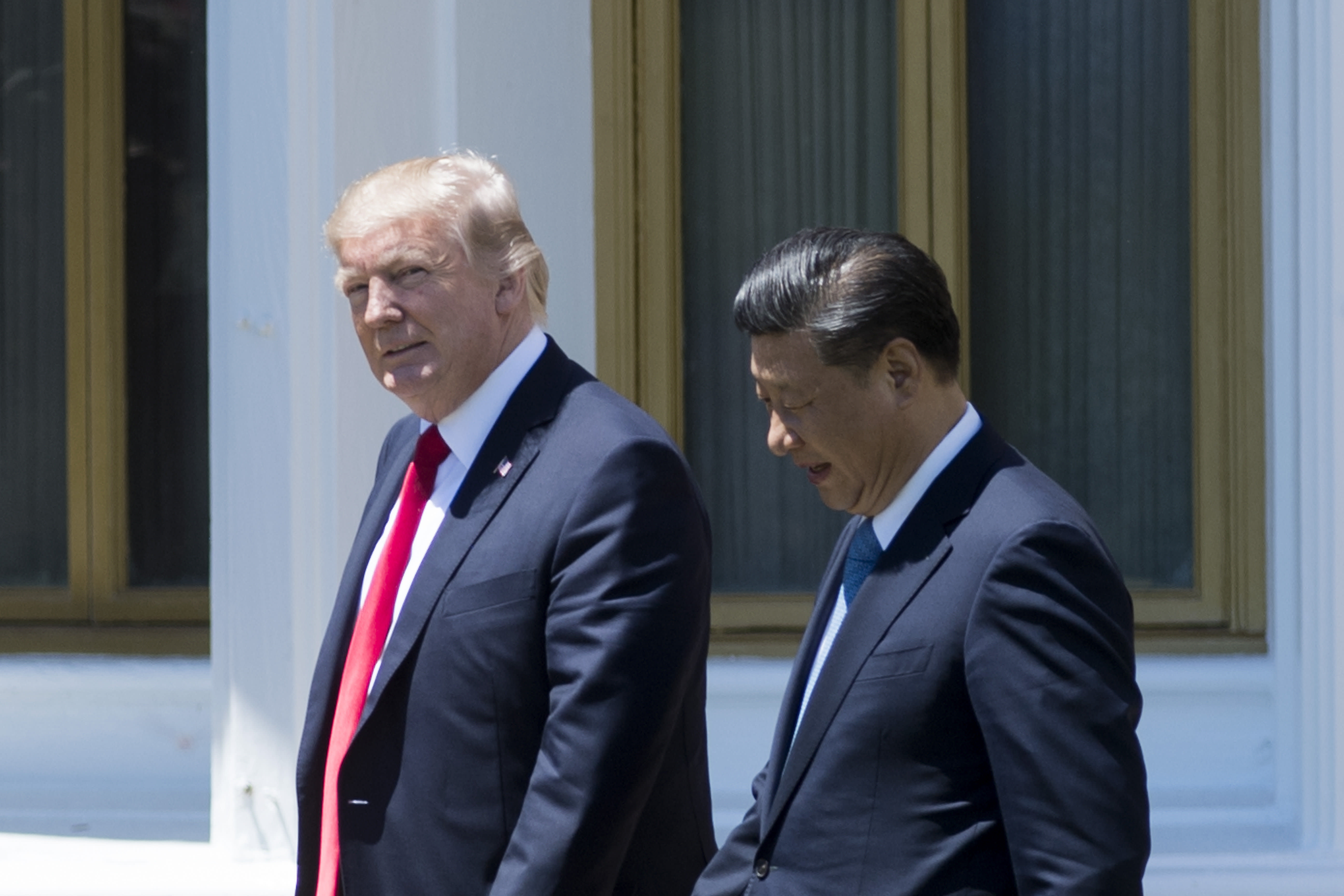China rolls out the red carpet for other countries as it ups tariffs on US goods - 4 minutes read

President Donald Trump (L) and Chinese President Xi Jinping walk together at the Mar-a-Lago estate in West Palm Beach, Florida, April 7, 2017.
Jim Watson | AFP | Getty Images
China is "rolling out the red carpet for the rest of the world" by lowering tariffs with other countries — even as its trade war with the U.S. continues to drag on, according to Peterson Institute for International Economics.
In a little known fact, Beijing has over the past year lowered duties on goods from countries that compete with America, the think tank said in a recent report.
The research showed that:
- China's average tariff rate on U.S. goods jumped from 8% at the start of 2018 to 20.7% this month.
- China's average tariff rate on its imports from all other countries fell from 8% at the start of 2018 to 6.7% last November. It has stayed at that level since then.
China's move to lower tariffs on countries other than the U.S. has received little public attention, with much media coverage focusing on what Beijing and Washington say and do to each other.
But in fact, by lowering duties with other trading partners, Beijing has put American firms at a "considerable" disadvantage at a time when U.S. President Donald Trump has repeatedly used tariffs as a way to negotiate with other countries, PIIE said.
"China has begun rolling out the red carpet for the rest of the world. Everyone else is enjoying much improved access to China's 1.4 billion consumers," the think tank said in a June 12 report.
"Trump's provocations and China's two-pronged response mean American companies and workers now are at a considerable cost disadvantage relative to both Chinese firms and firms in third countries," said researchers, who include notable trade expert Chad P. Bown.
This is just one more good reason why trade wars are not easy to win.
Peterson Institute for International Economics
The report said that another important implication of China's action is that "Americans are likely suffering more than President Trump thinks, " as a result of the trade war.
Inflicting such punishment on Americans may be one factor motivating China, it said.
The tariff fight between Washington and Beijing started more than a year ago and recently expanded beyond trade into areas such as technology and national security. Tensions between the top two economies in the world have rattled investors and threatened to derail economic activity globally.
'Tariffs are costly'
Lowering tariffs on products originating from other countries also allows China to limit the damage on its economy, according to the PIIE researchers.
Imposing elevated tariffs on U.S. products means that Chinese firms and consumers may well be the ones bearing the additional costs to import from the U.S. But they now have an option to switch away from American suppliers because they can import the same products from other countries at a better price, according to the think tank.
"Tariffs are costly to the country imposing them, and China is no exception," said the researchers. "Concern over such costs likely (explains) both China's restrained retaliation against the United States and its decision to reduce tariffs toward the rest of the world."
"This is not good news for US exporters," the report said, explaining that China "reducing tariffs on imports from other countries means US exporters also face an increasing disadvantage relative to competitors in Canada, Japan, Europe, and elsewhere."
As a result, fewer U.S. goods have entered China in the last year, PIIE said. While China's overall imports have fallen in recent months as a result of slowing economic growth, the country's purchase of American goods has declined much more rapidly, the think tank noted.
The researchers cited some examples of U.S. products, such as seafood, that have lost market share in China over the past year. U.S. exports of lobsters to China fell by 70% after Beijing raised tariff to 25% in July last year, they said. But Canada's lobster exports nearly doubled because of China's tariff cut in 2018.
Blow to US firms
Trump on Tuesday said he "will be having an extended meeting" with Chinese President Xi Jinping at the G-20 summit in Japan next week. The announcement came days after more than 600 companies wrote a letter to the president expressing their concerns about the trade war escalating.
And it's not just China that American firms have been squeezed out of as a result of several policies by Trump. The president pulling the U.S. out of the Trans-Pacific Partnership, for example, placed American beef exporters at a disadvantage versus their peers in Japan too, according to PIIE.
"This is just one more good reason why trade wars are not easy to win," said the researchers.